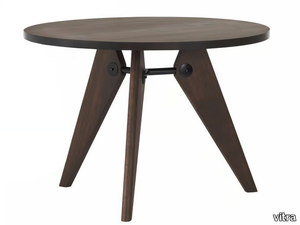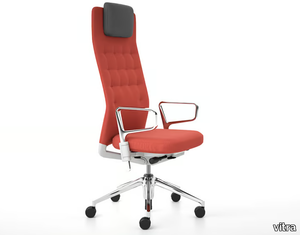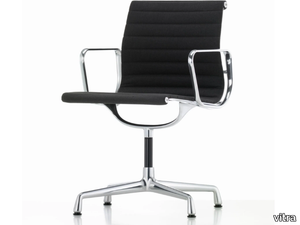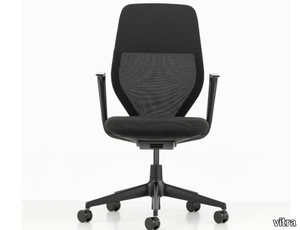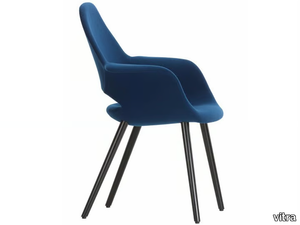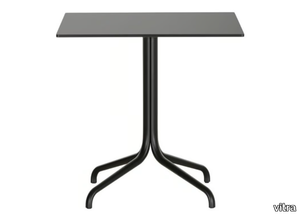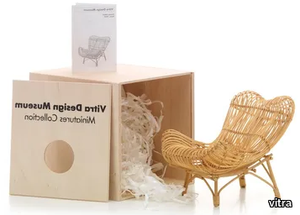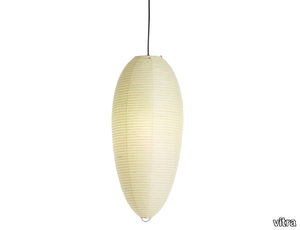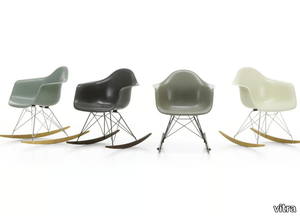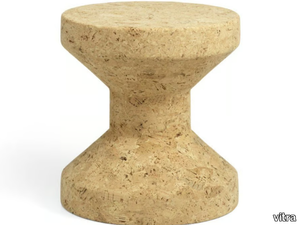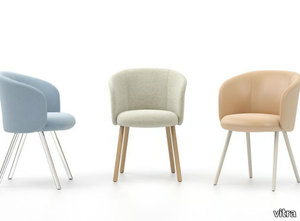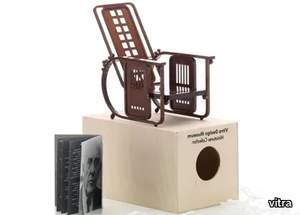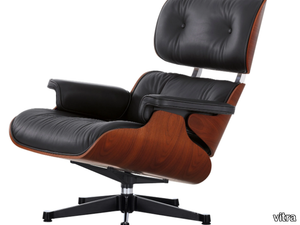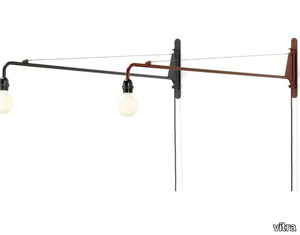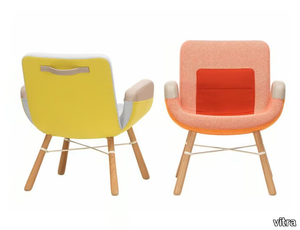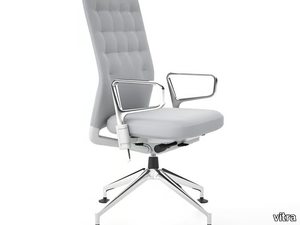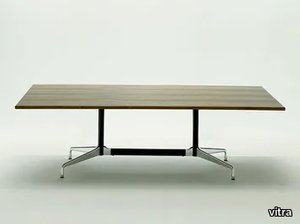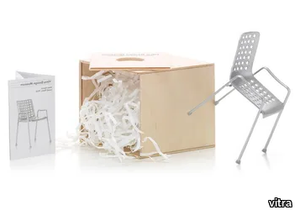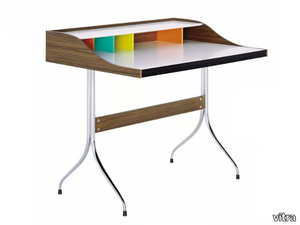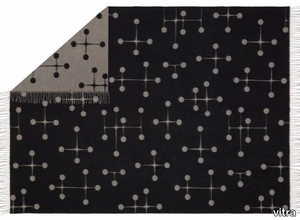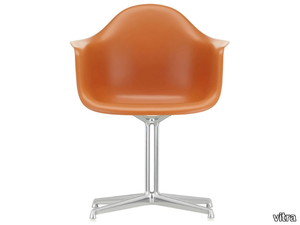Girard Ornaments - Heart
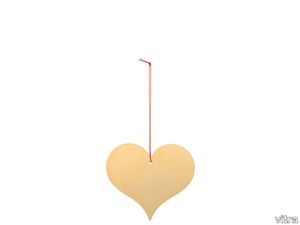
vitra > Styling
The range of motifs does not limit the use of Ornaments by Alexander Girard to seasonal occasions but a number of them are perfect, for example, for Christmas time.
Physix Conference
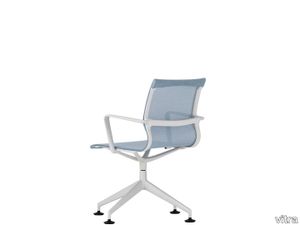
vitra > Chair
Physix Conference provides dynamic seating and lasting comfort, even without the mechanical adjustment options of the Physix office chair, thanks to its flexible seat frame and elastic textile cover in knit or woven fabric. The chair is an excellent choice for conference and meeting areas in which understated elegance is the key image.
Suita Club Armchair
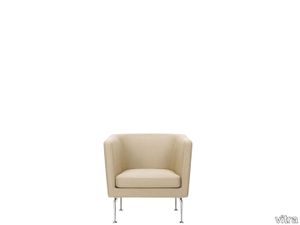
vitra > Chair
The Suita Club Armchair by Antonio Citterio can be combined with any member of the Suita sofa family. Thanks to its elegantly understated design, the armchair can be used on its own or paired with many other sofas. It is generously upholstered, ensuring excellent comfort even without additional cushions.
Physix Studio
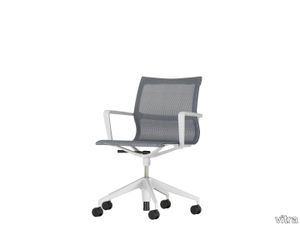
vitra > Office Chair
Physix Studio is the reductive combination of an elegant seat structure with a height-adjustable five-star base on castors. The functional features of the lightweight Physix Studio office chair make it ideal for the contemporary home office and its emphasis on understated aesthetic, without having to compromise on ergonomy and comfort.
Akari UF4-L10
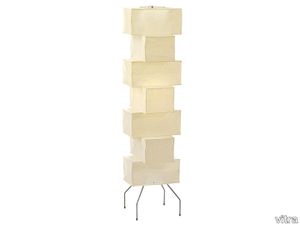
vitra > Styling
The Akari Light Sculptures (1951) by Isamu Noguchi are a series of luminaires, handcrafted from traditional washi paper by Japanese artisans. ‘The harshness of electricity is thus transformed through the magic of paper back to the light of our origin – the sun.’ (Noguchi)
Uten.Silo I
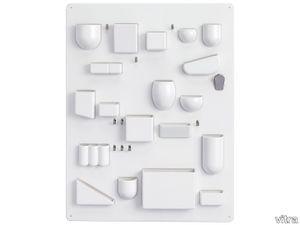
vitra > Styling
Designed by Dorothee Becker, Uten.Silo (1969/70) brings order to offices, kitchens, workshops, bathrooms and children's rooms. It is available in two different sizes and three colour options: white, black or red.
Akari 9AD
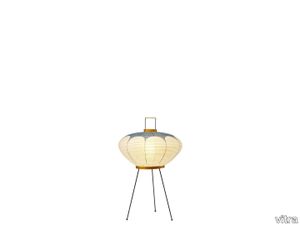
vitra > Styling
The Akari Light Sculptures (1951) by Isamu Noguchi are a series of luminaires, handcrafted from traditional washi paper by Japanese artisans. ‘The harshness of electricity is thus transformed through the magic of paper back to the light of our origin – the sun.’ (Noguchi)
Miniatures DSW
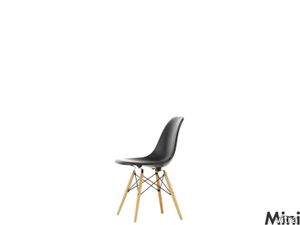
vitra > Styling
The Fiberglass Chairs are rare examples of a satisfying synthesis of formal and technical innovation. For the first time in the history of design, Charles and Ray Eames utilized malleability of plastic for the development of a comfortable seating shell that corresponds to the shape of the human body. <br/><br/>The idea of making a three-dimensional molded shell goes back to a design from 1940. The original attempt to make the shell out of plywood was unsuccessful, however, due to the extreme conditions necessary to mold the material. Only with the advent of fiberglass technology was it possible to achieve satisfying results. <br/><br/>The first Fiberglass Chair went into production in 1950. After years of experimentation, Charles and Ray Eames were able to realize their goal: an industrially produced chair that is inexpensive, sturdy, and comfortable. For ecological reasons however fibreglass was questionably. Thanks to recent advances in technology and materials, the DSW can be produced today in exact the same shape but made of polypropylene.
Polder Compact
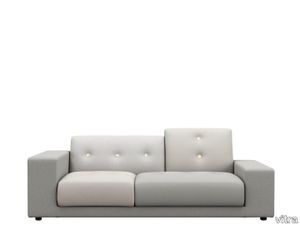
vitra > Sofa
The distinctive character of Hella Jongerius's comfortable Polder Sofa derives from the combination of diverse fabrics and colours, an asymmetrical shape and charming details.
Suita Club Sofa

vitra > Sofa
The Suita Club Sofa was developed for use in offices, waiting areas and lobbies. The construction and workmanship are designed to withstand the demanding conditions of such public areas. The upholstery of the backrest ensures a high degree of comfort without the need for additional cushions.
Lobby Chair ES 105
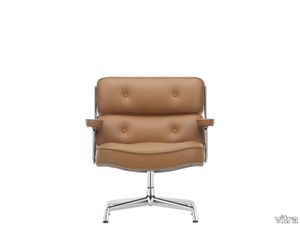
vitra > Chair
The Lobby Chairs were originally designed by Charles and Ray Eames to furnish lobby areas in New York City's Time & Life Building. All three models in this seating group offer supreme comfort with their luxuriously padded leather cushions, including the inviting visitor chair ES 105, which has an extra-wide seat and low base. The leather upholstery is available in a wide range of colours.
Fauteuil Direction
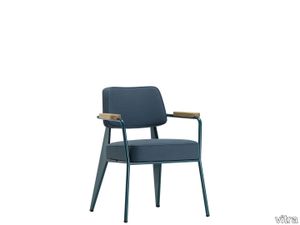
vitra > Chair
Fauteuil Direction is especially suited for dining room seating or as an armchair in home offices. The design reflects Jean Prouvé's characteristic aesthetic vocabulary, which is based on structural requirements. The comfortably upholstered armchair is available with fabric or leather covers in a selection of different colours.
Akari 15A
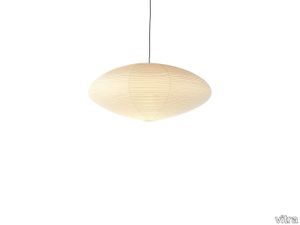
vitra > Styling
The Akari Light Sculptures (1951) by Isamu Noguchi are a series of luminaires, handcrafted from traditional washi paper by Japanese artisans. ‘The harshness of electricity is thus transformed through the magic of paper back to the light of our origin – the sun.’ (Noguchi)
ID Soft L

vitra > Chair
The high backrest of ID Soft L comes with padded upholstery for excellent comfort. Although the chair exudes elegant sophistication, its sleek lines and minimal design also lend it an understated character. ID Soft L can be harmoniously combined with other chairs and is a perfect addition to many different settings.
Grand Sofà 2½-Seater
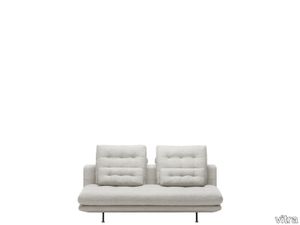
vitra > Sofa
Grand Sofà (2017) is Antonio Citterio's interpretation of luxurious comfort and contemporary design. The designer's Italian flair for lightness and elegance is united with the trademark quality and precision of the Swiss company Vitra.
Plywood Mobile, Model B
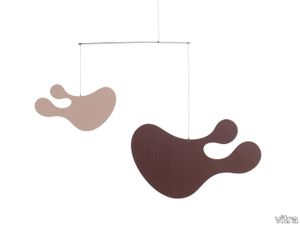
vitra > Styling
The Plywood Mobiles, whose shapes are strongly reminiscent of Ray's artwork and graphics, were hung from the ceiling of the Eameses' apartment in Los Angeles.
Wooden Doll Little Devil
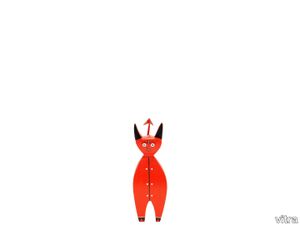
vitra > Styling
The new Little Devil may not be the most imposing of the Wooden Dolls in terms of size, but with its bright red color and mischievous, saucy expression, it still looks more than capable of a few devilish pranks.
ID Visitor Trim
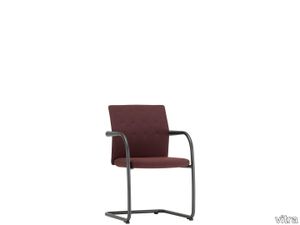
vitra > Chair
Antonio Citterio collaborated with Vitra to develop different versions of the ID Visitor chair, perfectly coordinated with the ID Chair Concept. Thanks to an understated design, they can be combined with almost any office chair and integrated in a wide variety of work environments.<br/><br/>With its quilted upholstery, the backrest of ID Trim conveys a sense of quality craftsmanship. The compact padding offers excellent comfort and – like the seat cushion – is also available in a sustainable PU-free version. The cantilever base is stackable.
Eames Fiberglass Side Chair DSX
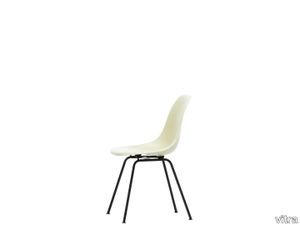
vitra > Chair
With its four-legged base in tubular steel, the DSX (Dining Height Side Chair X-Base) is the most understated version of Charles and Ray Eames's classic plastic chair. Its comfort can be further enhanced by the optionally available seat cushion.
Miniatures Womb Chair & Ottoman
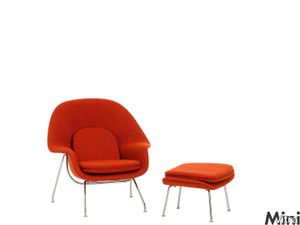
vitra > Styling
The Womb Chair is regarded as one of the icons of postwar American Modernism. Designed by Eero Saarinen in 1946 and manufactured by Knoll International since 1948 (originally as Model No. 70), this armchair is the first piece of mass produced furniture in the history of design with an integrated seat shell made of fibre reinforced plastic. The expansive foam upholstered shell, which has two inset cushions for added comfort, is supported by a bent tubular steel frame. <br/><br/>Saarinen developed the Womb Chair in close collaboration with a boat builder. His stated intention was to design a chair that would allow a variety of sitting positions and create a special feeling of relaxation and cosiness. This central design concept finds vivid expression in its name.
.04 beam seating
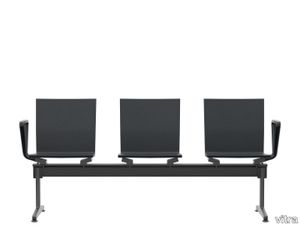
vitra > Chair
The great comfort of .04 is first revealed upon use. The flexible seat shell made of sturdy integral foam provides optimal support, assisted by the integrated leaf springs in the backrest. Mounted on cross beams, the .04 bench units are ideally suited to serve as modular furniture in waiting areas.
Akari 10A
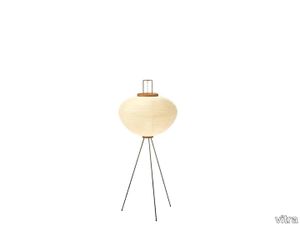
vitra > Styling
The Akari Light Sculptures (1951) by Isamu Noguchi are a series of luminaires, handcrafted from traditional washi paper by Japanese artisans. ‘The harshness of electricity is thus transformed through the magic of paper back to the light of our origin – the sun.’ (Noguchi)
Fauteuil de Salon
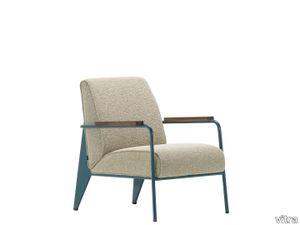
vitra > Chair
Developed by Jean Prouvé, the Fauteuil de Salon is a typical example of the distinctive structural aesthetic of his designs. The armchair's understated character suits a wide variety of interiors, and its ample upholstery and oiled, solid wood armrests emanate inviting comfort.
Hang it all (Marble)
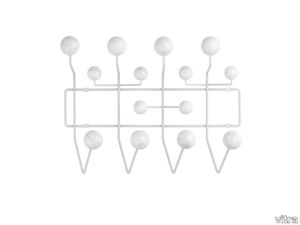
vitra > Styling
The 'Hang it all' coat rack by Charles and Ray Eames, with its characteristic, brightly coloured balls, has long become a design classic. Vitra is now presenting an elegantly understated special edition with balls made of light-hued Carrara marble and a light grey wire frame. This refined version is limited to 999 numbered pieces, which are each marked with a small numeral on one of the balls.
Akari YP1
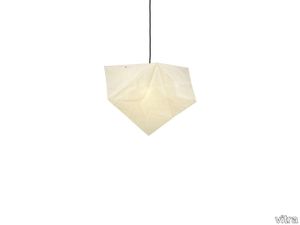
vitra > Styling
The Akari Light Sculptures (1951) by Isamu Noguchi are a series of luminaires, handcrafted from traditional washi paper by Japanese artisans. ‘The harshness of electricity is thus transformed through the magic of paper back to the light of our origin – the sun.’ (Noguchi)
HAL Ply Stool Medium
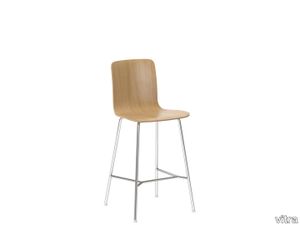
vitra > Stool
The medium-height bar stool with a high-quality, easy-to-clean plywood seat shell and stable four-legged base is ideal for use with tables and counters of around 90 cm in height. The extensive HAL family of chairs by Jasper Morrison also includes a selection of other bar stools with a higher base and plastic seat shells.
Cone Chair
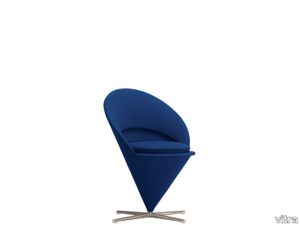
vitra > Chair
Verner Panton originally designed the Cone Chair for a restaurant in Denmark. It takes its shape from the classic geometric figure for which it is named. The padded shell forms the back and armrests and, together with the soft seat cushion, creates an exceptionally comfortable armchair, which is mounted on an elegant stainless steel swivel base.
Eames Wool Blanket
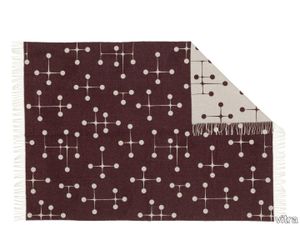
vitra > Styling
Like many other prominent twentieth-century architects and designers, Charles and Ray Eames also sought to implement their ideas about colours, shapes and materials in the design of textiles. The 'Dot Pattern' was created in 1947 in conjunction with an exhibition at the Museum of Modern Art in New York. The pattern is a large-scale graphic composition made up of crosses and dots, thereby referencing the abstract paintings by Ray Eames from the 1930s.<br/><br/>The Eames Wool Blankets are produced in a jacquard weave, which means that the colours of the 'Dot Pattern' are reversed on the front and back. Available in several hues, the wool blankets are made of 100% high-quality Merino lambswool, and are particularly light, fine and soft to the touch while also providing optimal warmth and thermal balance.
Ronan Bouroullec Drawing Poster, multicolour
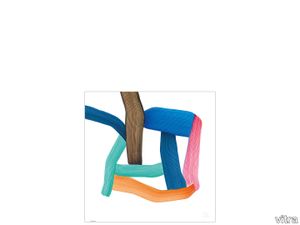
vitra > Styling
The drawings of Ronan Bouroullec exemplify the practice of 'intuitive drawing', derived from Surrealism's literary roots and its écriture automatique.
